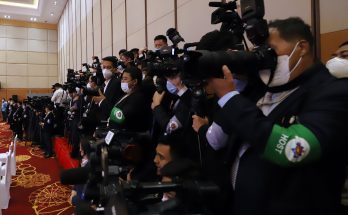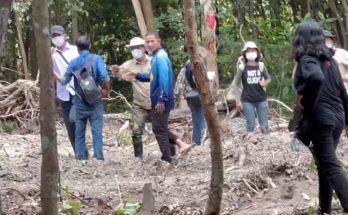February 13th is World Radio Day. The United-Nations decided in 2011 to promote radio as a medium to improve cooperation between broadcasters and to encourage major networks and community radio stations alike to promote access to information and freedom of expression over the airwaves.
Radio is a vital communication tool in Cambodia as almost 40% of men and women aged 15-49 listen to the radio on a weekly basis. In rural areas, radio is often the only medium that can rapidly disseminate critical information about social issues or natural disaster preparedness to large and remote audiences. The majority of the population live in rural areas without access to television or print media. Despite the success of smartphones and the internet around the country, radio is still the most pervasive, accessible, affordable, and flexible mass medium available. This is why the role of radio is under close examination today.
In its 2013 World Press Freedom Index, Reporters Without Borders states that conditions for the media are now critical in Cambodia. This was attributed to the policy of censorship orchestrated by the Government, and the deadly attacks and death threats carried out against journalists who expose government corruption and illegal activities. The jailing of independent radio station owner Mam Sonando and the brutal murder of journalist Hang Serei Odom in Ratanakiri, who had been investigating reports of illegal logging by local officials, provide chilling examples of this crackdown. Of the approximately 120 radio stations broadcasting in Cambodia, only four refuse to be subjected to the authorities’ will, and Voice of Democracy Radio (VOD) is the only national media outlet broadcasting non-biased news. However, VOD is constantly being challenged. For example, VOD was asked repeatedly by Cabinet Officials to remove an article from its website relating to Deputy Prime Minister Sok An’s fainting on February 1st. There is arguably no more important struggle for democracy than ensuring a diverse, independent and free media. A free Press is at the heart of that struggle which is why the current situation is so problematic.
Free press is not a privilege but a necessity in a functioning democracy. The monopoly of the media in Cambodia has resulted in media content becoming one-dimensional. This leads to a less well informed public. A multiplicity of outlets tends to offer a multiplicity of voices, where as a concentration of media ownership, overwhelmingly dominated by the Government or its allies in the business community, is not a healthy situation for freedom of expression or for a plurality of perspectives.
This is why both radio and VOD’s role in Cambodia is so critical. VOD is unique in that it is an independent, local media broadcaster known for quality public-service radio programming. It serves as a tool for social enquiry, as a means for cultural expression and entertainment, for collecting, preserving and enhancing oral and musical heritage, for gathering information on social issues, and as a means for training and transferring knowledge and technologies. It also serves as an agent for social change, a channel for expressing ideas and opinions and a tool for conflict management and resolution. In this way, VOD and its independent media partners provide an alternative mass medium to overcome the shortcomings and political bias of state and other commercial broadcasters.
The cornerstone of a democratic media system is that it helps to create a well-informed public. According to COMFREL, VOD was the only national broadcaster providing truly independent coverage of the 2012 Commune Elections, allowing people to listen to various opinions and perspectives from both government and opposition party representatives, as well as from civil society and the private sector. We aim to continue providing this vital service during the national elections in July 2013.
Radio provides a low cost medium, specifically suited to reach remote communities and vulnerable groups including the illiterate, the disabled, the rural poor and indigenous groups, offering groups a platform to intervene in public debate, irrespective of people’s social standing, wealth or educational level. VOD has adopted a two-way process which calls for the active participation of its audience. Through its live call-in shows, village debates and the broadcasting of community forums, VOD promotes the exchange of views, brings people closer together, stimulates information, and enhances the value of local knowledge. Only radio has the power to do this in Cambodia.
The benefit of freedom of the press belongs to everyone – to citizens as well as publishers. The key is that it should be not be seen as the publisher’s freedom to print, but rather the citizens’ right to know.
To mark World Radio Day, UNESCO Phnom Penh Office is collaborating with the Cambodian Center for Independent Media (CCIM) and the UNESCO Community Radio Programme in Ratanakiri Province to produce a special phone-in radio show dedicated to discussing the importance of radio for Cambodians, especially those living in the rural and remote provinces where access to information is extremely limited. The show will air on 13 February from 16:00-17:00 on Sarika FM 106.50 in Phnom Penh Sarika FM 95.50 in Siem Reap.
///////////
Mr Pa Nguon Teang is Executive Director of CCIM. CCIM is the legal entity of VOD Radio and works to secure the financial and technical support that VOD requires in order to produce and broadcast independent news and analysis through its online, radio and print network.


